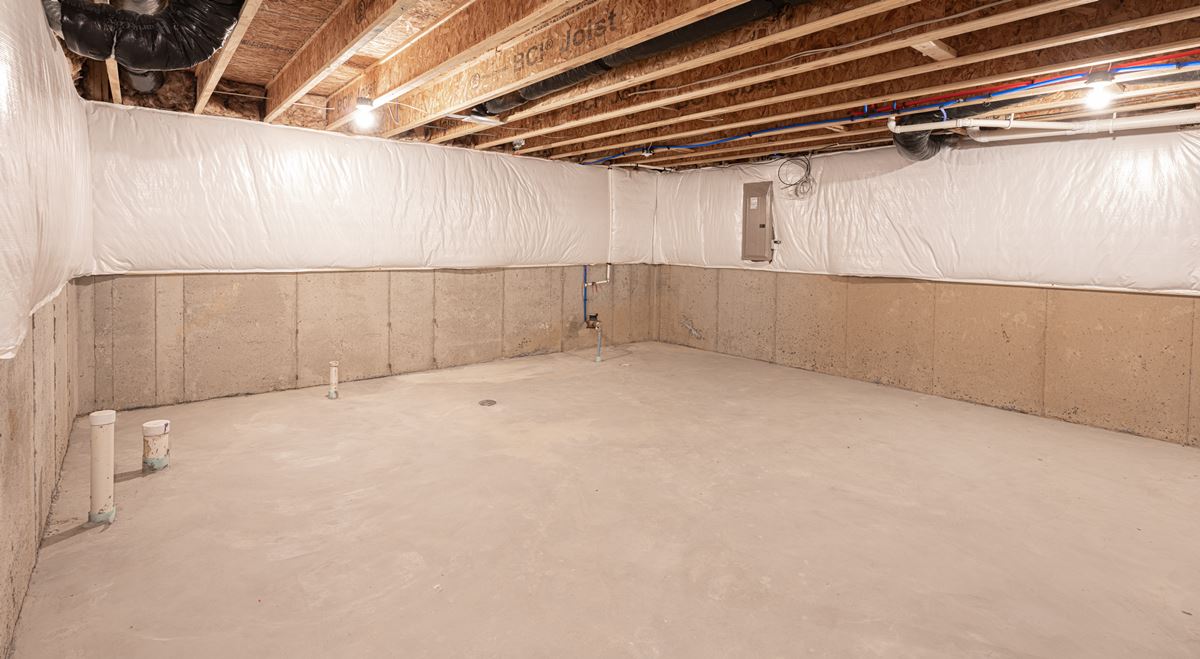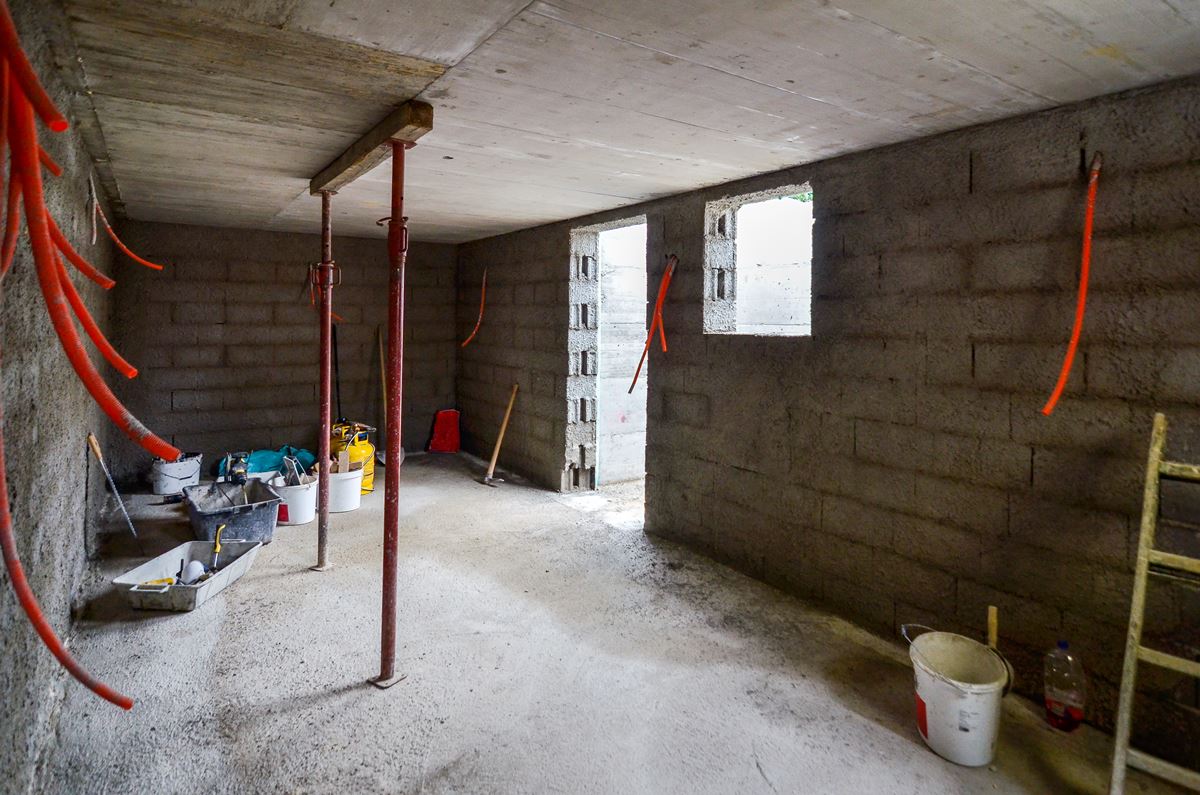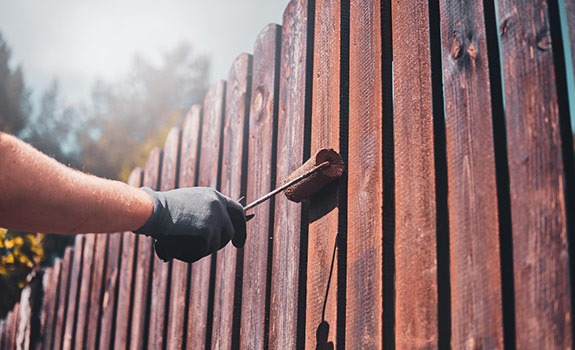Like any other part of the house, the basement should be a moisture-free area because most people use it for storage. Moisture can damage appliances in either metal or wood. So, it makes sense to waterproof any basement to prevent any water-related damages from occurring.
It’s also worth nothing that most water damages in basements result from a faulty foundation. The foundation of a house is the crux of the structure. If it has a problem, it should be detected and addressed as soon as possible. The earlier you waterproof your basement, the better. But if you haven’t, do so before it’s too late. Look for a reliable local contractor who can help you in that regard.
That said, here’s a quick guide on basement waterproofing:
What Is Basement Waterproofing?
Since concrete is a porous material, it’s often the case that water finds its way in basements from the surrounding soil. Therefore, a system that drains water from the basement is required. The whole point of waterproofing, then, is to protect the integrity of your houses’ foundation by removing the pressure (hydrostatic pressure) that water can exert on your foundation.
Contractors, either during or after construction, connect a series of drainage channels in your basement to enable water to pass out. Water flows to a hole called a sump pit, which collects the drainage water. Then a device called a sump pump expels this water.
In addition to safeguarding your home’s foundation from hydrostatic pressure, there’s another benefit to consider: waterproofing increases property value. A well-executed waterproofing system not only provides peace of mind but also serves as an attractive feature for potential buyers.
In competitive housing markets, homes with professionally installed drainage systems and waterproofed basements stand out, offering an edge in resale value and marketability. Therefore, investing in waterproofing is not just a protective measure; it’s also a financially savvy one.
What Causes Basement Leaks?
Basement leaks are common. So if you’re going to attend to any leaks, you have to know what causes them. That said, here are some of the common causes:
#1 Poor Drainage System
Your home’s drainage system and the gutter system helps to protect your basement from flooding. So, if something blocks your gutters, water may fill up in your basement.
#2 Cracks in the Foundation
If your foundation has cracks, water may enter your basement. In such a case, the cracked foundation would have to be repaired as soon as possible to prevent further damage.
#3 System Malfunction
If the drainage system fails, for example, the sump pump fails, or the water supply lines crack/burst, it may cause the basement to flood.
#4 Poor Basement Sealing
Basement sealant is used to prevent water from seeping in. But, if this sealant was improperly applied, there’s a chance that with time, water may seep into the basement. You heighten the chances of this happening when you encounter heavy rains.
How Do You Prevent Basement Leaks?
The most effective way to prevent basement leaks is to hire a professional contractor to check on them. Most of the problems that lead to basement leaks originate from a faulty foundation. So, ideally, you want to have a good contractor whom you can call periodically for a checkup. That said, here are some more tips below:
#1 Don’t Ignore Small Leaks
If you notice a leak, call your contractor immediately. The same applies to small cracks. It could be a sign of something serious going on behind the walls. Call your contractor immediately to fix these issues.
#2 Check the Gutters
If your basement is wet, try to inspect the outdoor areas, especially the gutters, for any irregularities. Remember, these should drive water away from your home. If they aren’t doing their job, water could end up in your basement. So ensure that they are always in good condition.
Why Hire Professional Basement Waterproofing Contractors?
With property maintenance, it’s always best to work with professionals. It’s no different with basement waterproofing. A home for most people is their most prized asset. So, you’d want to work with experts to make any repairs or improvements to any part of the house to keep it intact.
Research which company meets your needs and whether their services are reliable. You may have to pay a bit more for reputable professional contractors, but the benefit is that they will provide a good quality service in return. It will save you time and money in the long run. Therefore, ideally, you ought to choose reputable contractors based on their experience or track record, costs, and website customer reviews. Google reviews are also an excellent information source.
Benefits of Basement Waterproofing
#1 Helps Maintain Property Value
Waterproofing increases the value of your property. If you plan to sell your property in the future, investing in basement waterproofing will ensure that your house’s value is preserved. A water-damaged basement may work against you when selling your property because the prospective buyer would have to fix it.
#2 Saves on Costs
Waterproofing your home can save you a lot of money in the future. By investing in it now, you prevent serious problems from occurring in the future, which may cost way more than it is to waterproof your home now.
#3 Increases Structural Strength
Waterproofing your home adds an extra layer of strength to keep your house’s foundation intact. Waterproofing ensures that water doesn’t get into the foundation walls, which may cause them to crack.
Conclusion
With home maintenance, prevention is usually better than cure. Basement waterproofing is one way to strengthen your foundation. You don’t need to wait for an issue to surface for you to waterproof your basement. Instead, invest in basement waterproofing, that’s if you already haven’t. If you have, your trusted service provider should conduct regular checkups on your basement and foundation, too.
Published in: Home advice | Author: Lynn








